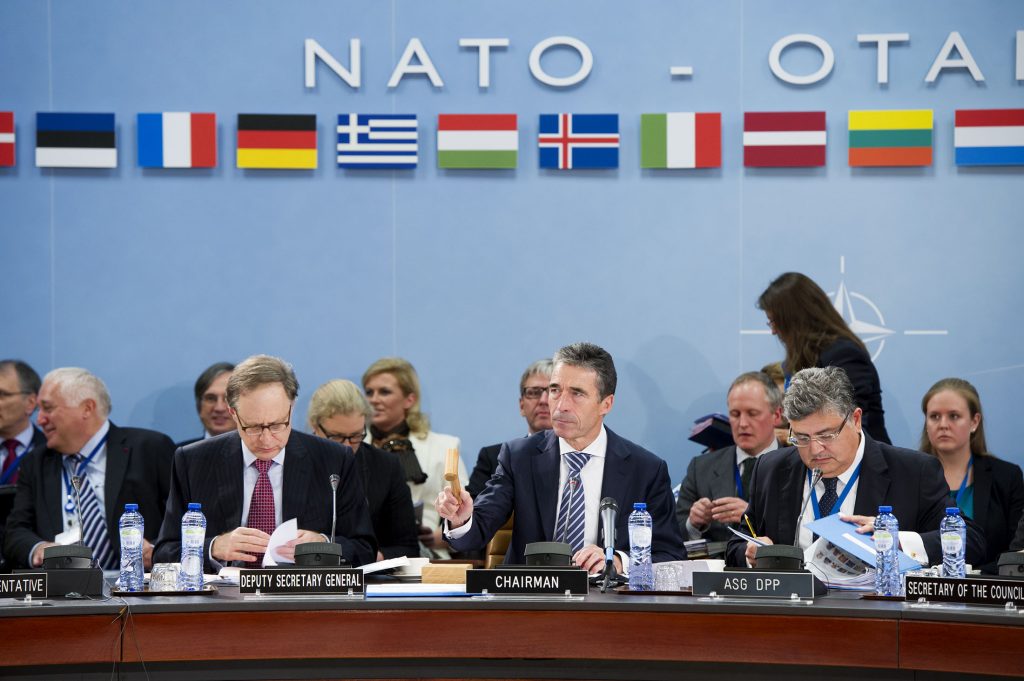
From NATO: NATO Secretary General Anders Fogh Rasmussen stressed the importance of closer cooperation on defence at the start of today’s Allied defence ministerial meeting.
The Secretary General said that more sharing of resources and coordination on projects to maintain and increase capabilities was the best way to tackle reduced defence budgets.
“At a time when defence budgets are under pressure, we also need to cooperate more on defence planning, training and exercises,” the Secretary General said. “This period of economic austerity poses a challenge to defence budgets but it also opens an opportunity for strength and cooperation and new ways to provide security.”
NATO defence ministers started their two-day meeting on Tuesday (9 October) at NATO headquarters with discussions on how to provide security in a time of economic austerity.
Speaking to ministers, the Secretary General said that Allied nations need “the right forces, the right capabilities, and the right structures” to deter and defend against any threat to the safety and security of their populations.
He said that to do this, Allied nations had to continue investing in defence, despite current austerity measures.
“We must recognise it may be hard to find fresh resources for defence while nations take the necessary steps to reduce their deficits and debts, but we must not overlook that security is the foundation of prosperity,” the Secretary General said. He added that the key to overcoming this dilemma is closer cooperation.
“More multinational teamwork can help us spend our scarce resources more effectively,” said the Secretary General. He added that Allies also need to agree that they will increase their investments in defence once the economy recovers.
The ministers were expected to keep up the momentum on Smart Defence during their talks, finding more ways to become more efficient in defence spending with multinational projects.
Allies have already started to implement a number of multinational projects which were approved at the Chicago Summit. These projects give Allies more access to crucial capabilities covering areas such as clearing roadside bombs, sharing smart munitions and pooling maritime patrol aircraft. (photo: NATO)
Image: nato%2010%209%2012%20NATO%20DefMin.jpg
